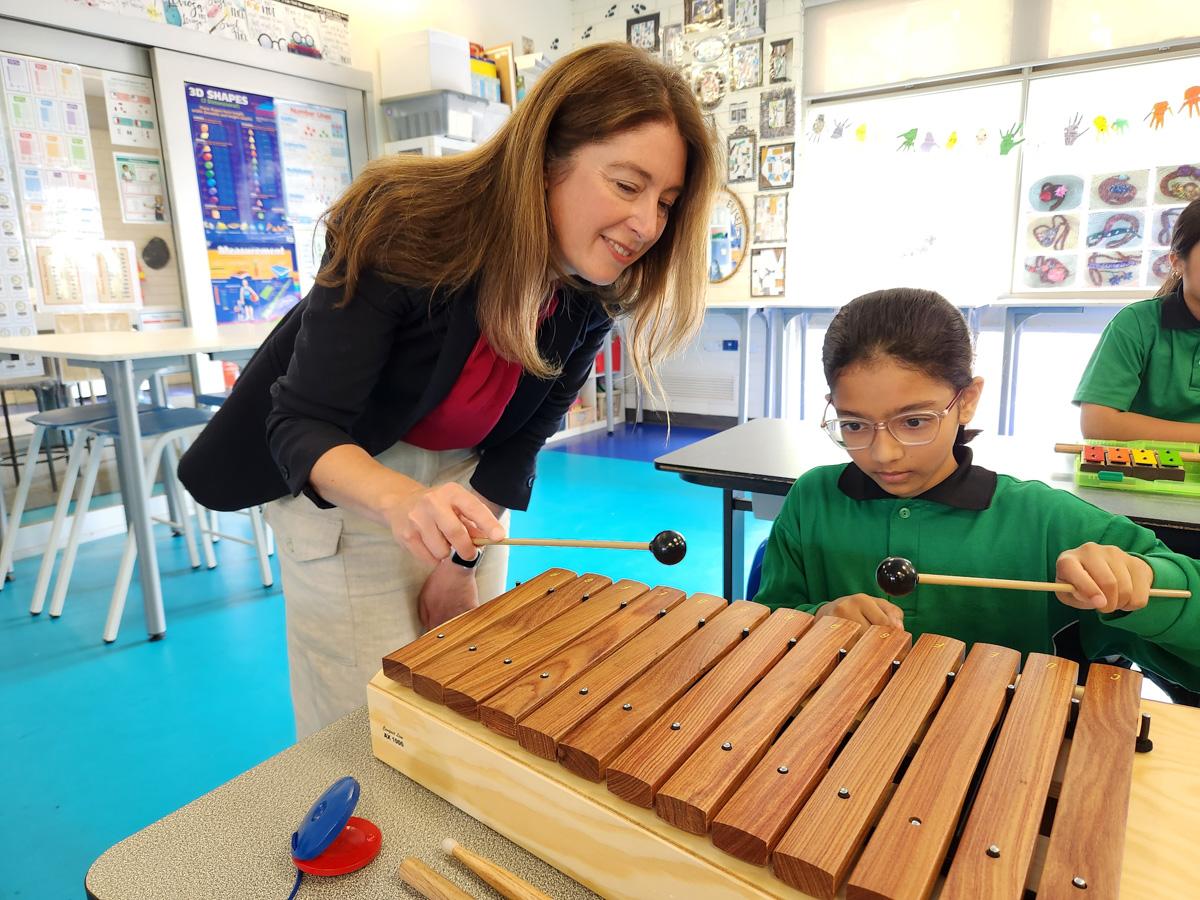Music education benefits child wellbeing in a post-COVID world
A new publication by a University of Adelaide researcher highlights the benefits of music education for child development and wellbeing, particularly in a post-COVID-19 landscape of disrupted social connections and networks.

Dr Emily Dollman, Head of Music Education and Pedagogy at the University of Adelaide’s Elder Conservatorium of Music, with a student.
Dr Emily Dollman, Head of Music Education and Pedagogy at the University of Adelaide’s Elder Conservatorium of Music, has published a new research chapter that outlines her investigations, in a book on the possibilities of wellbeing education.
“My research explores the ways music education provides a valuable means to counteract the negative impact of COVID-19 upon school communities, by strengthening their social cohesion and community,” she said.
“Sustained, high quality music education can also improve the cognitive function of children and increase their wellbeing.”
Students across Australia experienced significant disruption to their learning during the COVID-19 pandemic, which also disrupted their social networks and usual means of face-to-face connection.
“This has unfortunately led to a documented rise in anxiety and depression and a reduction in attention span,” said Dr Dollman.
“In a post COVID landscape, my focus has turned to finding solutions that can renew and strengthen children’s sense of community within their school and peer networks. Music ensembles, both instrumental and choral, are proven to strengthen social cohesion and community.
“Music also has proven potential to alleviate anxiety and depression and provide emotional release and comfort.”
Dr Dollman’s research investigated the value of music for child development and wellbeing, with a particular focus on the value of participatory music learning, music education’s impact in low socio-economic demographics and the neuro-musical field.
“The rapid development of the neuro-musical field of research over the past twenty years has enabled understanding of the significant benefits of music towards physical, cognitive, and socio-emotional child development,” she said.
“Additionally, neuro-musical research highlights that music education is positive for brain development in childhood, in particular for auditory processing, literacy, executive function, and working memory.”
Dr Dollman explained that learning a musical instrument involves the whole brain, including motor networks, auditory processing, linguistic networks, working memory and visual cortices. Studies show that participation in school instrumental music is directly related to higher exam scores.
“There is also a growing body of research on the wellbeing and cohesion outcomes of music education programs delivered in low socio-economic communities, though these findings have relevance for school communities of all demographics,” said Dr Dollman.
In the post-COVID-19 landscape, music’s ability to build social cohesion, allow for emotional release, and provide proven cognitive development will be pivotal in assisting students to rebuild connections and counteract developmental delay due to interrupted learning.
Read Dr Dollman’s research chapter in full by following this link.
Media contacts
Dr Emily Dollman, Head, Music Education and Pedagogy, Elder Conservatorium of Music, University of Adelaide.
Phone: +61 (0)458 851 670. Email: emily.dollman@adelaide.edu.au
Jessica Stanley, Media Officer, the University of Adelaide. Mobile: +61 (0)422 406 351.
Email: jessica.stanley@adelaide.edu.au
